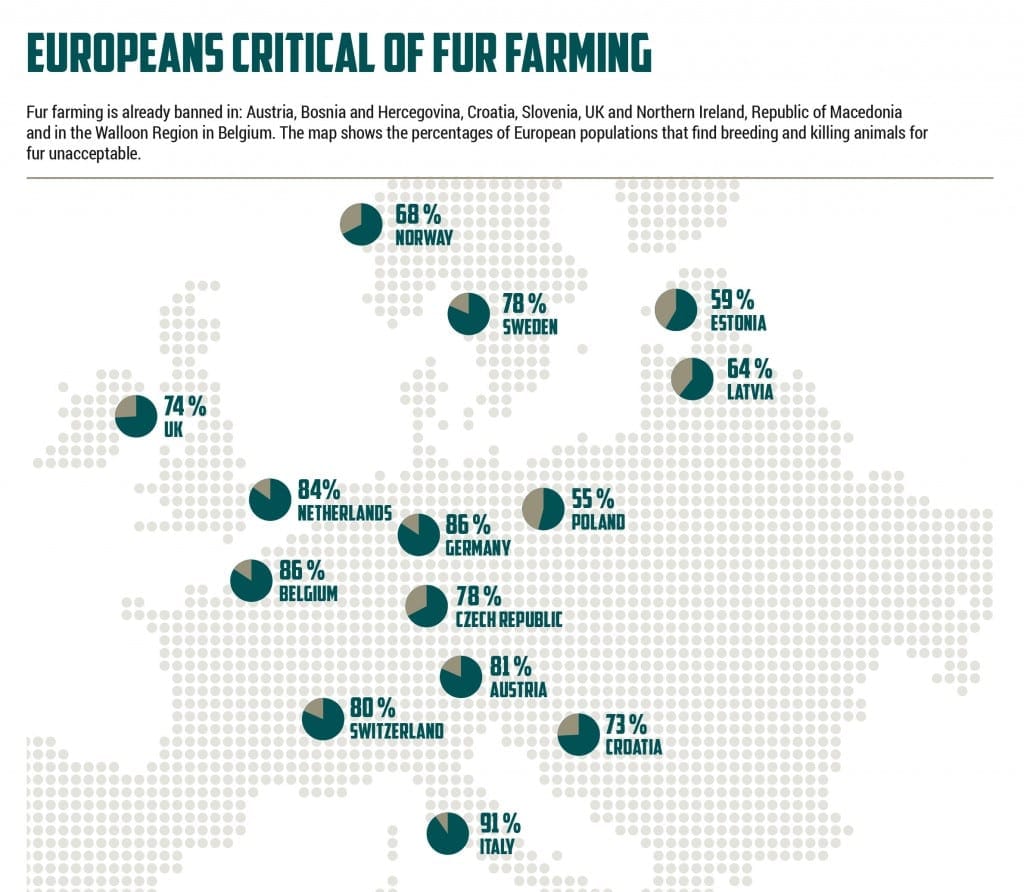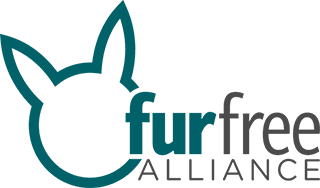
Croatian citizens show support of fur farming ban
ZAGREB, 25 FEBRUARY 2015 – Last week Croatian citizens gathered on the central square of the capital city Zagreb to make a public statement against chinchilla fur farming. In 2007 the Croatian government decided to ban fur farming with a phase-out period of 10 years. Recent lobby efforts of chinchilla breeders have focused on an exemption of the ban for chinchilla farming, which, paradoxically is the only remaining type of fur farming in Croatia. The event in Zagreb, organised by Croatian Fur Free Alliance member Animal Friends Croatia, made it clear that the vast majority of Croatian citizens does not think fur farming is acceptable. A recent poll showed that 3 out of 4 Croatian citizens are in support of a fur ban.

The Croatian Animal Protection Act, that was implemented on the first of January 2007, recognised the fur industry as an extremely cruel practice and banned breeding animals for their fur, with a 10-year phase-out period. Croatians hoped that, after almost a decade into the transitional period, the extreme animal suffering on fur farms would have come to an end. Breeders of the South American rodent have had more than enough time to transition to another, more ethical and humane form of business. The existing ban should be fully effective starting January 1, 2017.
 Nine years into the phase-out period, disregarding the fact that the vast majority of chinchilla breeders have complied with the ban, the Association of Croatian breeders of chinchillas has started an initiative to overthrow it. Since chinchillas are the only animals kept on fur farms in Croatia the initiative can be regarded as a mockery of the Croatian law, government, MPs and more than 70% of citizens, who are in support of the ban.
Nine years into the phase-out period, disregarding the fact that the vast majority of chinchilla breeders have complied with the ban, the Association of Croatian breeders of chinchillas has started an initiative to overthrow it. Since chinchillas are the only animals kept on fur farms in Croatia the initiative can be regarded as a mockery of the Croatian law, government, MPs and more than 70% of citizens, who are in support of the ban.
The serious animal welfare problems that result from keeping wild animals in small cages are confirmed by numerous, extensive scientific research studies. Animal cruelty is inherent to fur production and animals on all fur farms have been found to exhibit severe health issues and stress-related symptoms as infected wounds, self-mutilation, infanticide, cannibalism and stereotypical behaviors. After a short miserable life in a small cage animals in the fur industry are killed by painful methods such as electrocution, gassing or neck breaking. Fur bans are the only legitimate solution to the serious animal welfare problems in the fur industry.
Fur farming is therefore banned in many countries, such as the United Kingdom, Northern Ireland, the Netherlands, Austria, Slovenia, Bosnia and Herzegovina, Serbia and Macedonia, and effectively banned in Germany and Switzerland due to stricter regulations. An increasing majority of the European population finds it unjustifiable to subject animals to prolonged suffering for trivial ends, such as fur coats or fashion accessories.



